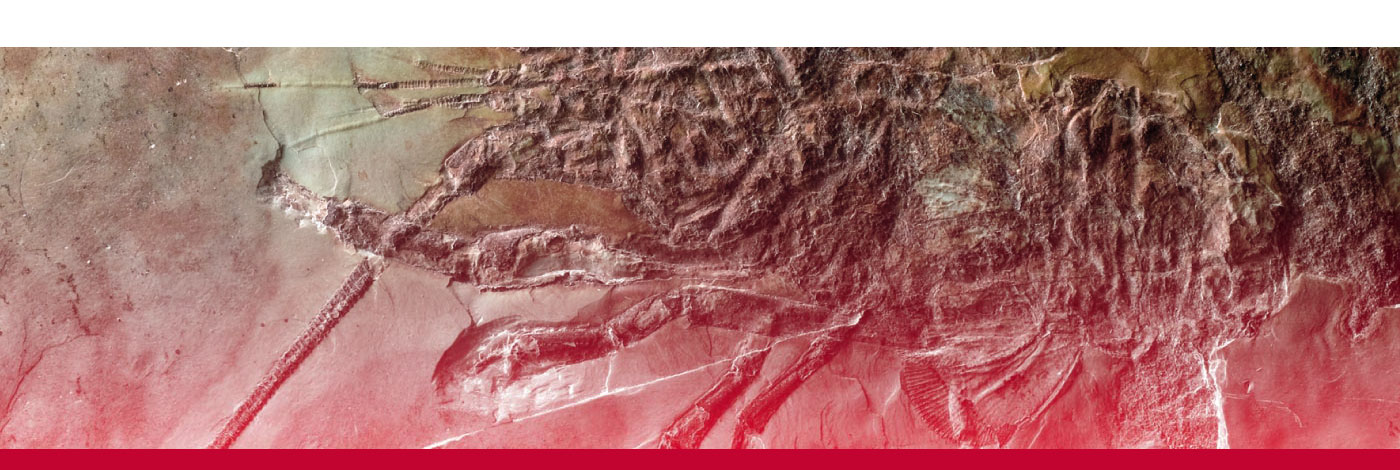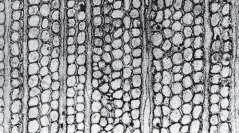

 Geodiversitas
33 (1) - Pages 11-24
Geodiversitas
33 (1) - Pages 11-24In this paper we describe fragments of silicified wood specimens found in "El Barranquillo" outcrop (Castellote, Teruel, Spain) in the Aragonese branch of the Iberian Range. This new species without any growth ring and with mixed radial pitting could represent an ancestral form of the modern Sequoioideae subfamily. This anatomical study, in association with an observation of the lithological facies, the position and the preservation of the fossil woods, evidences a subtropical climate with abundant precipitation and without seasonal contrasts, during the deposition of the Utrillas Formation.
Cupressaceae s.l., Sequoioideae, late Albian, Iberian Range, Palaeoclimate, new species.